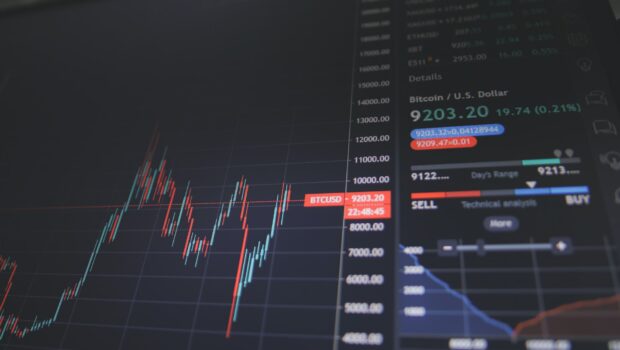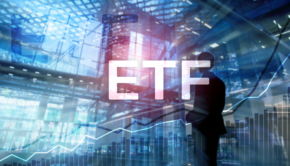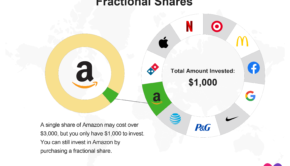Even Though Hong Kong Stocks Fall, Alibaba is Awaited to Skyrocket
As a result of the Xinhua News Agency’s criticism of internet gaming addiction, Hong Kong’s stock market fell, raising fears that the industry may be the next to be targeted by Beijing’s regulatory arm. After the newspaper withdrew the item, losses were reduced.
After dropping as much as 1.8 percent, the Hang Seng Index fell by 0.2 percent to 26,194.82. Tencent Holdings and NetEase, two of the market’s poorest performers, fell at least 6 percent. Ahead of the release of its quarterly results, Alibaba Group Holding recouped all losses. The Shanghai Composite Index in China fell by 0.5 percent on Tuesday.
As a result of the Economic Information Daily, a state-run daily, calling online games “spiritual opium” and “electronic narcotics,” traders rushed to unwind their holdings in gaming companies. The publication singled out Tencent’s top-grossing and most popular game, Honour of Kings.
This story was taken down from the newspaper’s website and WeChat account when it was speculated that it did not represent the government’s official position.
In July, Beijing’s regulatory storm wiped away US$1.2 trillion in market value. Beijing took aim at the after-school tutoring business this month, after stomping on technology firms in the previous months. Families are burdened financially by high housing prices, tutoring fees, and medical expenditures, according to policymakers.
The Capital Company’s managing director, Aleksey Mironenko, said that the level of uncertainty surrounding Chinese IT businesses would stay high in the foreseeable future. A greater risk premium is now required for Chinese stocks due to investor concern over regulatory uncertainty. Authorities must make their actual objectives clear in order to regain market trust.”
Tencent’s stock fell 6.1% to HK$446 and lost US$60 billion in market capitalization. In comparison to its February peak, the firm’s capitalization has dropped by US$415 billion, an amount comparable to the size of Louis Vuitton’s owner LVMH.
Game developer NetEase fell 12 percent to HK$145.90. To HK$211.60, Meituan, which is being investigated by the government for antitrust violations, dropped 2 percent.
According to Bloomberg’s Stock Connect southerly trading connections, mainland Chinese traders sold HK$3.7 billion (US$481 million) worth of Hong Kong-listed equities by noon Tuesday, capping a 12-day net selling run. It was the first monthly decline since March when they liquidated HK$63.5 billion of equities. BlackRock, the world’s largest money manager and one of the companies in the list of blue chip stocks, stated in a study that “the regulatory clampdown is likely to continue for years, although its severity will fluctuate.” There was also a 0.8% increase in Alibaba’s share price to HK$193.50. Alibaba’s share price increased by 0.8% to HK$193.50. What investors may learn from this newspaper’s owner is how Beijing’s crackdown will affect business profitability. According to Bloomberg’s survey of experts, the company’s net income probably fell 4.4% from a year ago.
Standard Chartered increased by 0.6 percent to HK$47.75 in the last trading session. In the second quarter, the lender’s net income more than quadrupled, surpassing forecasts. Another US$250 million in share buyback plans and a 3 cent interim dividend were also announced.
Other major Asian markets, with the exception of Taiwan, fell as US equities fell overnight as falling Treasury rates fueled fears that the economic recovery might falter.
New sources indicate that Hong Kong equities climbed for a second day on the strength of technology firms, while traders assessed the economic effect of growing Covid-19 infections in China. Korea’s Krafton, a gaming company financed by Tencent, has been struggling.
To finish trading, the Hang Seng Index gained 1.on 2% to 26,605.62, its highest level since July 29. Meituan surged 8.4% to HK$239, while Tencent surged 5.3% to HK$486.20, boosting the Hang Seng Tech Index by 2.5%. The Shanghai Composite Index rose by 1% on Monday.
Nomura analysts led by Shi Jialong said in a note to clients on Monday that investors in Hong Kong and China have become more positive about the internet industry as a result of the current sell-off. They said most of the online giants could emerge stronger from the regulatory storm.
Do you have any queries concerning the world’s most important issues and trends? Our award-winning team has created SCMP Knowledge, a new portal of selected material that includes explainers, FAQs, analysis, and infographics.
If the regulatory environment stabilizes by the fourth quarter, the internet industry as a whole, according to the research, may trade rangebound.
Chinese real estate developer China Evergrande climbed 7.3% to HK$5.87, while its new-energy vehicle business gained 8% to HK$13.20, and its property development arm soared 20.5 percent to HK$6.70 Reuters reported that the group was in negotiations with state-owned and private enterprises about selling its assets for cash.
Its share price plummeted as much as 20 percent to 400 500 won before ending 8.8 percent under its offer price. Tencent, which owns 15.4% of the company, may have tainted its debut due to increased regulatory scrutiny on the business.
China, on the other hand, reported 143 new illnesses on Monday, of which 108 were local in origin. Depending on the virus cases and occasions, most probably, China isn’t going to open its borders in the near future, in order to prevent the spreading of COVID-19.
According to OCBC Bank analyst Tommy Xie, “investors are likely to turn their emphasis to the recent rare breakout of Delta variant in China” from regulatory issues. Because of China’s zero-tolerance policy, “the service industry is likely to see stricter controls on people’s movements,” he said.
Following a highly contagious Delta virus detection in Nanjing airport employees on July 20, China is testing millions of individuals as the outbreak spreads to 17 provinces. Since the peak of the pandemic in Wuhan last year, China is confronting its toughest challenge ever.
According to Kenny Wen, who is the wealth management strategist at Everbright Sun Hung Kai, in the future, most probably investors are going to follow up the situation. In the short run, Hong Kong’s equities will be relatively unaffected unless fresh instances spike dramatically and the central government tightens travel and lockdown restrictions further, he noted.
Photo by Nick Chong on Unsplash
















